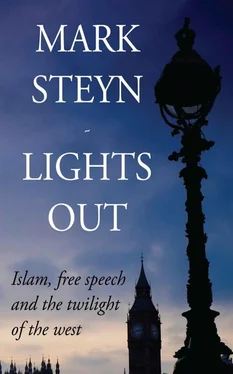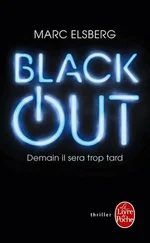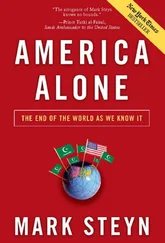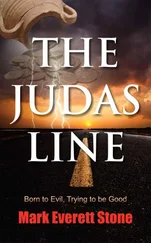Yet what is Mr al-Asadi to conclude from his jail cell about freedom of expression in the western world? Out of “respect” for Islam, the BBC and CNN and The New York Times and Le Monde have shown less of those cartoons than his government-published Yemeni paper. If you’re a Toronto printer who’d rather pass on a job printing up gay propaganda, our oh-so-correct Human Rights Commission will fine you and sternly remind you that your religious beliefs are fine within the confines of your own home but they’ve got to be left inside the house when you close the front door behind you each morning. But, if you’re a Muslim, your particular conventions – many of them relatively recent and by no means universally observed – have now been extended throughout the public square.
In contrast to Professor Lee, the Boston Phoenix was admirably straightforward. It declined to publish the cartoons, it said, “out of fear of retaliation from the international brotherhood of radical and bloodthirsty Islamists who seek to impose their will on those who do not believe as they do… Simply stated, we are being terrorized, and as deeply as we believe in the principles of free speech and a free press, we could not in good conscience place the men and women who work at The Phoenix and its related companies in physical jeopardy.”
I was the subject of an attack in The Phoenix a year or two back. As hit pieces go, it was a pretty feeble effort, and I didn’t feel it was worth driving all the way down to Boston just to kill a few members of staff and burn the building down. But it makes you think. In our multicultural society, the best way to get “respect” from others is to despise them; the surest way to have your views boundlessly “tolerated” is to be utterly intolerant of anybody else’s. Those who think Islam will apply these lessons only to op-ed cartoons or representations of Mohammed are very foolish.
Meanwhile, we prattle on about “moderate Muslims”, telling ourselves that the “vast majority” of Muslims aren’t terrorists, don’t support terrorists, etc.
Okay, then why don’t we hear from them?
Because they live in communities where the ideological bullies set the pace, where the price of speaking out is too high, and so they find it easier to say nothing, keep their heads down. And why would we expect them to do any differently when the mighty BBC and CNN do the same? If there is such a thing as a “moderate Muslim”, he’s surely thinking, “Well, if the CBC and The Toronto Star have to knuckle under to the imams, there’s no point me tossing in my two bits.”
It’s odd to hear so many eminent media mandarins patiently explaining that their principal role is deciding what we don’t need to know. Simply as a commercial proposition, for the press to trumpet its professional judgment in knowing when to withhold information seems a surefire way for the slide in circulation to turn into an avalanche: they’re going to need great recipe columns and film listings if that’s the basis on which they approach news reporting. But, beyond that, for the media to play the role of ceremonial maintainer of the multicultural illusions is to damage their credibility on the central issue of our time.
The Islamists picked the right fight. The Danish cartoonists are not Salman Rushdie; Jutland is not literary London. No modish metropolitan semi-celebrities are flocking to the cause of the latest faraway country of which we know little. Yet it was not an accidental target. Denmark was the first country to recognize the demographic and cultural challenge of Islam and to elect a government committed to do something about it. This is the imams’ way of warning Norway and Sweden and Belgium and all the rest not to follow in the footsteps of their neighbour. Judging from the formal statements of Continental politicians, they’ve got the message loud and clear.
It’s often observed that, when President Kennedy famously declared he was a Berliner, what he actually said in his imperfect German was: “I am a donut.” If ever there was a time to say “I am a Danish”, this is it. Shame on all of those whose cowardice will bring disaster.
THE CARTOON CRISIS
Stout-hearted men?
The Western Standard, March 27th 2006
THE PERICLEAN funeral oration I opened with last issue was a bit of a bummer so here’s something to stir the blood: The New Moon , the smash Broadway operetta of 1928. It’s 1792 and in French colonial New Orleans… hang on, wasn’t New Orleans Spanish in 1792? Oh, well. Fortunately for Sigmund Romberg and Oscar Hammerstein, Spanish Colonialism Denial isn’t a crime like Holocaust Denial.
At any rate, Robert Misson, a chevalier lying low as a servant, is dreaming of throwing off the shackles of the French King and establishing a free state on the Isle of Pines. But how can he be so sure the other men will stand with him?
Ha, he scoffs:
Give me some men
Who are Stout-Hearted Men
Who will fight for the right they adore!
Start me with ten
Who are Stout-Hearted Men
And I’ll soon give you ten thousand more!
Shoulder to shoulder, and bolder and bolder
They grow as they go to the fore…
You may have seen the 1940 film version with Nelson Eddy tramping through the woods as stout-hearted torch-bearing yeomen fall in behind him.
Which brings me to our publisher, Ezra Levant. I’m not suggesting Ezra’s as camp as Nelson Eddy, but I am saying he might reasonably have expected to have attracted a similar size of crowd. In publishing the Danish cartoons, he’d started with our editor, Kevin Libin, and another ten stout-hearted men from the Western Standard office, and he had the right to assume he’d be joined by ten thousand more from the Vancouver Province and The Toronto Sun and La Presse and the Charlottetown Guardian .
But he wasn’t. Nor were the other handful of publishers and editors in France, Germany and elsewhere who reprinted the Danish cartoons. And the ramifications of that will echo through our culture for years. As I said last time round, one can have different opinions on the merits of the original cartoons. After I posted them at my website, Rosie Witty of Christchurch, New Zealand – by the way, isn’t it a little culturally insensitive to call a city “Christchurch”? – anyway, Ms Witty wrote to say that she found the cartoons “rude, crude and lewd… The freedom of the press sometimes is wise; sometimes it is not.”
That’s a valid argument if you’re writing to Jyllands-Posten , the originating newspaper in Denmark. Had this or that imam done as Ms Witty did, many a dispassionate observer might have agreed. But, instead of writing to the newspapers, the imams embarked on a campaign that led to embassies being burned, Turkish priests being murdered, and over a hundred others dying in associated riots. Once that happened, the issue was not the appalling nature of the cartoons but the appalling nature of the reaction to them. The 12 cartoonists are now in hiding. According to the chairman of the Danish Liberal Party, a group of Muslim men showed up at a local school looking for the daughter of one of the artists.
When that racket starts, no cartoonist or publisher or editor should have to stand alone. The minute there were multimillion-dollar bounties on those cartoonists’ heads, The Times of London and Le Monde and The Washington Post and all the rest should have said, “This Thursday we’re all publishing all the cartoons. If you want to put bounties on all our heads, you’d better have a great credit line at the Bank of Jihad. If you want to kill us, you’ll have to kill us all. You can kill ten who are stout-hearted men but you’ll have to kill ten thousand more. We’re standing shoulder to shoulder, and bolder and bolder.”
Читать дальше












